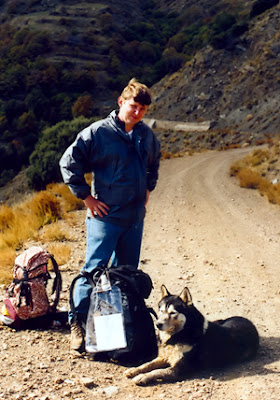I've seen a couple of blog posts about the Last Lecture of Dr. Randy Pausch at Carnegie Mellon.
For me, at least, it was more notable for what wasn't said. In the video, Dr. Pausch seems to be upbeat and even chipper. Even on my best days, I'm not nearly as confident or positive.
Maybe one's perspective changes when confronted with a terminal illness, or maybe he was feeding off the energy of the audience (one of the things I enjoy about teaching), but I think it's too much of a longshot to count on a personality change when confronted with such a challenge. Indeed, if I recall correctly from Tuesdays with Morrie, even Morrie Schwarz allowed himself a few minutes of sadness and self-pity every day.
Which reminded me that while we can all admire and be inspired from people like Dr. Pausch and Morrie, in the end, particularly in our most vulnerable moments, we have to live and deal with who we are. And our choices should probably realistically reflect our tendencies and limitations.
Which, as you might expect, got me thinking....
Which.....eventually....reminded me that I've been to a Last Lecture, although we didn't know it till after the fact.
In the fall of 1989 as a college junior, I took Analytical Mechanics from Dr. Lewis Salter. Dr. Salter, of course, was a man of a different generation, born in 1926 and spent most of his life in liberal arts colleges in the Midwest. He was President of Wabash College from 1978-1989, but if he was famous it was certainly in a pre-internet and more centralized media environment. (There seems to have been no New York Times obituary -- the only search result is in -- what else -- an article about Wabash remaining all male.)
Some time in 1988 or early 1989 he too was diagnosed with terminal cancer, and must've thought about his Last Lecture. His decision was to resign the Presidency and return to teaching. We were a class of 8 physics majors, and if I recall correctly, his only teaching course. It was a bit of a thrill to have a college president calibre person as an instructor. After all, two years before he had "rang in" our freshman class with the 1830's Caleb Mills bell.
Dr. Salter was, as you might expect, "old school": chalk and blackboard for him, paper and pencil for students, and 'thinking' for us all. If he lectured from notes, they were minimal -- his was the 19th and early 20th century style of lecturing. But it's the style I admire the most when done right. Like Tibetan Mandalas, physical truths were shared only to be erased from the blackboard to be carried forth by the students.
Sometime in October of that year, Dr. Salter became too ill to teach and died within a week of missing his first class. Our replacement instructor was a retired professor of the same vintage. We had a moment of silence, then on with the lecture.
I had heard that we was still working on research problems "to the end", and only now (yes, thanks to the internet) learned that he published a paper posthumously on solutions to Schrödinger's equation. This equation, incidentally, was proposed by Erwin Schrödinger in 1926, the year Dr. Salter was born. It mentions right in the abstract that "The approach is aimed at student exploration...."
Dr. Salter was only 63 when he died (he seems much older in my memory), and he did not have any young children at that point in his life. So I imagine that to some extent he had greater choice in how his last year would be spent. And even though he chose to return to an ordinary classroom of Waugh Hall overlooking the autumn tinged Wabash mall, his Last Lecture deserves mention on the 'blogosphere' as much as anyone's.
skip to main |
skip to sidebar
Random thoughts and anecdotes, hopefully with some direction.
About Me
About the blog title...
In addition to being a fairly straightforward metapor for how I think and write and learn, Drift and Diffusion are mathematical terms. "Drift" is (usually) a deterministic effect like Newton's laws and "Diffusion" is a random effect like molecular bombardment.
The most picturesque description I know is the route of a dandelion seed in a stream. The current is drift, and all the while water molecules are causing tiny oscillations that keep the motion from being predictable and smooth. Such mathematical models played a role in my (fading) thesis work, and in quantitative finance.
